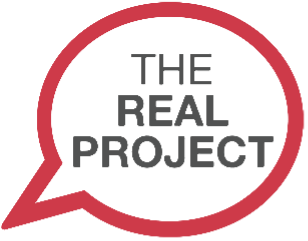Projects
For a complete listing of our current projects, see FCPR Project Overviews
FLORENCE Project
Florida's Linked Opioid Response and Epidemiological Network for Comprehensive Evaluation (FLORENCE) Project is sponsored by the Florida Department of Children & Families under the Applied Research Contract (LH862). The goal of the FLORENCE Project is to provide applied research services and innovative solutions to areas specific to the state's Opioid abatement strategies funded by Florida's Opioid Settlement Trust Fund. The research results will be used to assist the Department with understanding current and future program needs, policy implications, and impacts on services and resources, evaluating the effectiveness of interventions, and return on investments. The FSU Florida Center for Prevention Research supports the Department's implementation and evaluation of the Opioid Settlement funding and opioid abatement programs by conducting research projects for Opioid-related topics as assigned by the Department. This includes developing data-driven, predictive models that identify and support effective strategies to understand the prevalence of opioid misuse and opioid use disorder in Florida and reduce fatal and non-fatal opioid overdoses, ultimately driving meaningful and measurable positive health outcomes. This $6 million, 5-year project involves collaboration with ISF, a government consulting and tech company in Tallahassee, as well as collaborating with other FSU faculty from the College of Social Work, the Survey Foundry, and the College of Communication and Information's Biostatistics, Informatics, and Research Design Program.

Wakulla Drug-Free Communities Support Program
FCPR serves as fiscal agent on behalf of the Wakulla County Coalition for Youth for the CDC-funded Drug-Free Communities Support Program Grant, awarded in 2023. This 5-year grant is funded by the White House Office of National Drug Control Policy. This program aims to establish and strengthen community collaboration in support of local efforts to prevent youth substance use in Wakulla County, Florida. Key strategies to be implemented in the county will include the completion of a Community Needs Assessment and Asset Map; Public Education Campaign; Social Norms Marketing Campaign; engaging youth in the Too Good for Drugs program; providing parents education; creating a Wakulla Parent Facebook Support Group; developing a Resource and Referral list; and collaborating with local law enforcement, school officials, and other youth-serving agencies to enhance access, reduce barriers, and improve connections between systems and services.
Project Website: https://wccy.org/
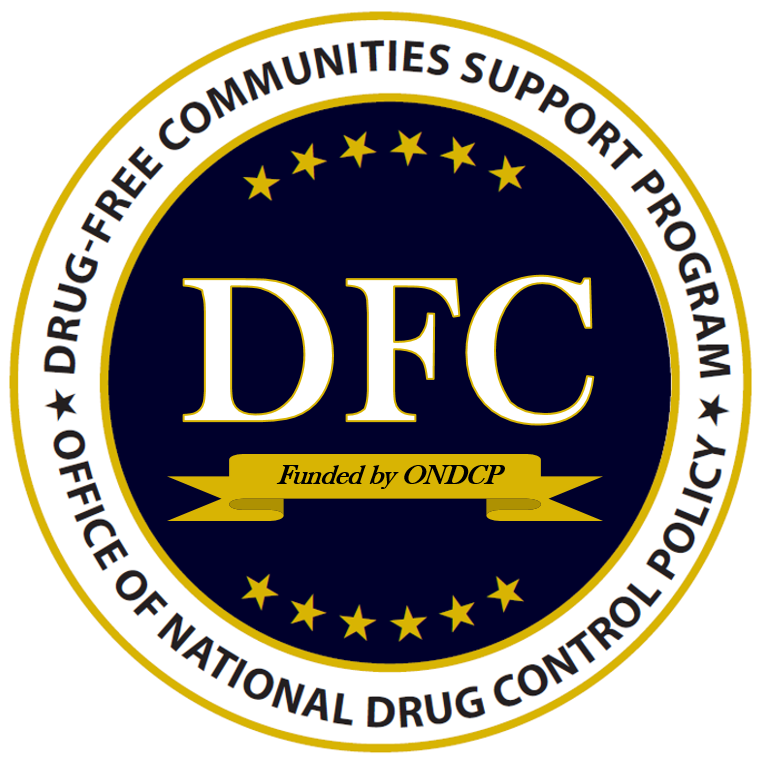
HEART Marriage Matters Project
FCPR serves as program evaluators for the HEART Marriage Matters Project, a federal Healthy Marriage and Responsible Fatherhood project sponsored by the Administration for Children and Families, as part of the HEART (Helping Every Area of Relationships Thrive) program. This project is implemented by Live the Life throughout the state of Florida and in parts of Texas. This 5-year project (2025-2030) aims to strengthen marriages by implementing Live the Life's Adventures in Marriage (AIM) Program. As evaluators, FCPR is responsible for evaluating Live the Life's AIM program, including conducting a rigorous local evaluation study of the curriculum.

Prevention Partnership Grant
Sponsored by the Florida Department of Children and Families, in collaboration with Chemical Addictions Recovery Effort, Inc. (CARE), this project focuses on two school districts in Calhoun and Liberty Counties and aims to reduce underage drinking and marijuana use and the resulting consequences. It integrates a Social Norms Marketing campaign along with the Active Parenting: Families in Action program, both of which are evidence-based prevention strategies that are designed to reinforce positive and healthy behaviors among targeted middle school students and their families.

True North Sexual Risk Avoidance Education (SRAE) Evaluation Projects
In collaboration with Live the Life, FCPR serves as an independent program evaluator for two Sexual Risk Avoidance Education (SRAE) grants that are under their True North Project. Both grants are sponsored by the U.S. Department of Health and Human Services, Administration for Children and Families (ACF), Family and Youth Services Bureau. Additionally, FCPR previously served as evaluators for two other SRAE grants in partnership with Live the Life (2019-2022 and 2020-2023). FCPR is responsible for performing evaluations of the adolescent pregnancy prevention programs implemented in middle and high schools throughout Florida, targeting at-risk youth. As evaluators, FCPR conducts site observations to monitor program fidelity and quality, collects and reports performance measurement data to ACF, and conducts local evaluation studies to measure participants' outcomes throughout the study period. FCPR works closely with the Live the Life implementation team to use collected data to perform continuous quality improvement of their programs.

True North Personal Responsibility Education Program (PREP) Evaluation Project
In collaboration with Live the Life, FCPR serves as an independent program evaluator for a Personal Responsibility Education Program (PREP) grant, sponsored by the U.S. Department of Health and Human Services, Administration for Children and Families (ACF), Family and Youth Services Bureau. Additionally, FCPR previously served as evaluators for one other PREP grant in partnership with Live the Life (2021-2024). FCPR is responsible for performing evaluations of the adolescent pregnancy prevention programs implemented in Florida Department of Juvenile Justice Detention Centers as well as alternative schools throughout Florida, targeting high-risk youth. As evaluators, FCPR conducts site observations to monitor program fidelity and quality, collects and reports performance measurement data to ACF, and conducts local evaluation studies to measure participants' outcomes throughout the study period. FCPR works closely with the Live the Life implementation team to use collected data to perform continuous quality improvement of their programs.
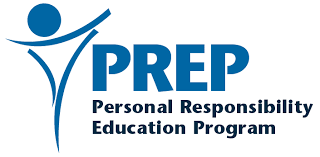
Jackson County Pathways to Purpose
Jackson County Pathways to Purpose is a youth mentoring project funded by the Florida Department of Juvenile Justice, implemented in Graceville School in Jackson County, Florida. This project aims to decrease risk factors and build protective factors among at-risk youth in 6th-12th grades. The project includes a multifaceted prevention program that includes implementation of the Teen Outreach Program, Green Dot violence prevention, Wheel of Wellness for Teens, youth leadership development, summer enrichment program, parent education program using Active Parenting of Teens, and involvement with the Jackson County Strong Families Coalition.
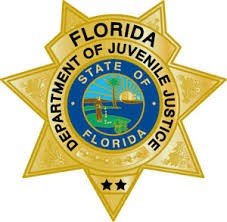
Past Projects
Adventures in Marriage Evaluation Project
FCPR serves as an independent program evaluator for Live the Life's Adventures in Marriage program, a U.S. Department of Defense-funded, divorce-prevention program implemented at military bases. Through the collection of pre, post, and follow-up data, FCPR is examining the long-term impact of Adventures in Marriage program on military couples' marital stability and quality.

Department of Elder Affairs
FCPR was contracted by the Florida Department of Elder Affairs (DOEA) to develop a comprehensive assessment training website. The purpose of the website was to provide training for assessors or case managers who need the knowledge to properly conduct a face to face comprehensive health and functional status assessment of an elderly person or person with disabilities, and to document the findings by completing each section of DOEA's Comprehensive Assessment Form. The website provides 16 modules of information and culminates in a final exam which must be passed before the assessor or case manager can conduct an assessment on behalf of the Florida Department of Elder Affairs.

Emergency Management Services
As a result of the tragedy at Virginia Tech on April 16, 2007 in which 33 students were killed and 15 others injured, Florida Governor Charlie Crist signed Executive Order 07-77 and established the Gubernatorial Task Force for University Campus Safety. Of the 30 recommendations for action by each college and university in Florida six of the recommendations are centered on developing and exercising their emergency management and crisis response plans. These recommendations included integrating and cooperating with local emergency response agencies as well as working with each campus' respective local Regional Domestic Security Task Force. The Emergency Management Services at the Florida Center for Prevention Research's objective was to provide a project team and a work scope for colleges and universities both in Florida and nationwide to develop and facilitate the necessary drills and exercises.
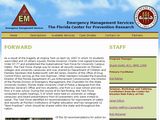
Florida Aviation / Aerospace Career Cluster Review
Sponsored by the Florida Department of Education (DOE), and Florida State University.
The goal of this project was to perform a review of the aviation and aerospace industry workforce standards at all entry levels and current workforce education and training curricular and articulation agreements to indentification gaps between industry needs and the capacity of Florida's education and training programs to meet those needs. Based on this review, FLACCR made recommendations to the FL DOE to create new curriculum and articulation agreements.
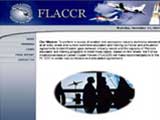
Florida Newborn Screen Program Evaluation
Sponsored by the Florida Department of Health, this project aims to evaluate the Florida Newborn Screening Program (NSP). This project involves a collaboration between FCPR, the FSU Center for Prevention and Early Intervention Policy, and the FSU Survey Foundry. Researchers are conducting a survey and leading focus groups to determine the reach and perceptions of the NSP statewide public education campaign.
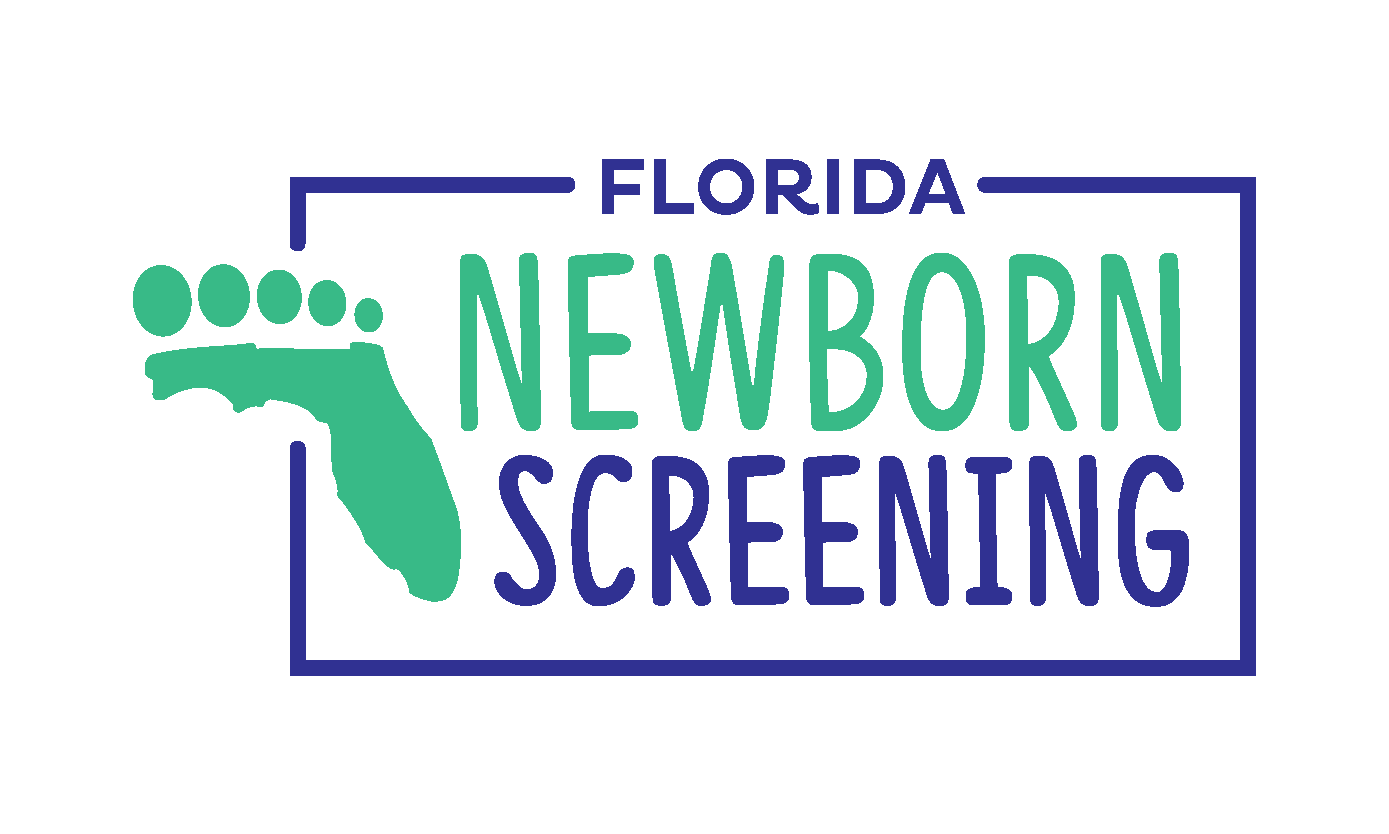
Florida Prevention System
FCPR assisted with the creation of the Florida Prevention System, a Vision for the Prevention Component of the Florida Drug Control Strategy.
The Florida Prevention System was a comprehensive approach for directing policy, establishing a solid resource base, sustaining collaborative partnerships, and developing a system for utilizing and evaluating a science-based approach to prevention throughout the state of Florida. The Florida Prevention System was based on the analysis of the alcohol, tobacco, and other drug use problems in Florida and aimed to create a common vision and comprehensive system for prevention.
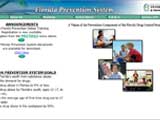
Florida Substance Abuse Response Guide (SARG)
Sponsored by the Florida Department of Children and Families, the purpose of this contract was to develop a mini-grant application process to identify, fund and monitor new and established community anti-drug coalitions.
The primary role of FCPR was to create a process that targeted, selected, funded, provided technical assistance and monitored agencies that are interested in establishing or maintaining a community anti-drug coalition.
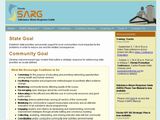
Florida Youth Prevention Delegation
FCPR collaborated with the Florida Alcohol and Drug Abuse Association, the Department of Education, Safe and Drug Free Schools, and the Office of Drug Control to bring together 33 of Florida's strongest leaders to create a statewide organization dedicated to addressing and tackling issues affecting Florida's youth.
The mission of the FYPD (Florida Youth Prevention Delegation) was to redefine the social norms among youth through the implementation of substance-free activities and community involvement, as an active youth coalition dedicated to decreasing substance abuse in Florida.
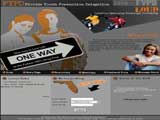
FL CURED
The FL CURED program was created by the Florida legislature in 2004. Its purpose was to give voice to the research community and particularly to scientists, in the research policy arena at the state level; to convene key stakeholders to create dialogue and focus on core issues relating to expediting cures; and to focus on the biomedical discovery process emphasizing translational research and process improvements within the research enterprise.
The legislature assigned this program to the Florida Department of Health (DOH) to administer and also created the FL CURED Advisory Council, established in section 381.855, Florida Statutes. The council was charged with the task of submitting annual recommendations for legislative changes "necessary to foster a positive climate for biomedical research in this state."
In May 2009, the DOH contracted with the FSU College of Medicine (COM) to manage the FL CURED program. The FSU COM selected FCPR as the grant management service provider for the FL CURED Program which included a website, the hosting of the biomedical Summit and the annual Advisory Council meeting, as well as production of the FL CURED annual report for submission to the Florida Governor and legislature.
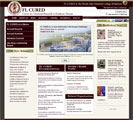
FRAMEWorks Healthy Marriage Evaluation Project
FCPR serves as program evaluators for the Florida Marriage Enhancement Project, a federal Healthy Marriage and Responsible Fatherhood project sponsored by the Administration for Children and Families FRAMEWorks program, implemented by Live the Life throughout the state of Florida. This 5-year project (2020-2025) aims to strengthen marriages throughout Florida by implementing Live the Life's Adventures in Marriage Program (AIM). As evaluators, FCPR is responsible for evaluating Live the Life's AIM program, including performing Continuous Quality Improvement. FCPR is also conducting a rigorous Randomized Control Trial of the curriculum through a program called Best Marriage Ever.
Project Website: https://bestmarriageever.org

FSU Measure Up
FSU Measure Up was a social norms initiative on FSU campus. The objective was to correct misconceptions about male students in regards to promiscuity and sexual violence.
FSU Measure Up was supported by funding from the Rape Prevention Education project provided by the Centers for Disease Control and Prevention (CDC) through the Florida Department of Health (FDOH).
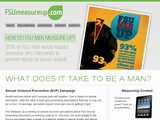
Funeral and Cemetery Training, Training and Evaluation Program
This project provided for on line training and certification for state Funeral and Cemetery inspectors. The training included four modules with a comprehensive examination for certification.
The four modules related to skills in areas of financial, communication, legislative and management. The comprehensive examination was taken on line at the completion of maneuvering through the four modules. Implementation of this program was handled through the Department of Financial Services.

Guiding Good Choices
Guiding Good Choices (GGC) (formerly known as Preparing for the Drug Free Years) was a program designed to teach parents skills that can help prevent drug and alcohol abuse in their families.
The primary goal of GGC was to increase family involvement that is rewarding and enhances parent-child bonds. The program was offered in a series of sessions, each designed to focus on one of five areas. The program began with increasing parents' knowledge of the risk factors associated with drug abuse. It then focused on teaching parents the skills that help mitigate these risk factors, such as how to clearly communicate expectations for behavior, how to reduce family conflict, and how to encourage the expression of positive feelings and love. One of the sessions taught both parents and children various ways to resist peer and social pressures to engage in inappropriate behavior.

Hospital Response Plan of Florida
Sponsored by the Florida Department of Health (DOH), Florida State University along with two partners, Health Strategies, Inc., and the Florida Hospital Assoc., developed a statewide hospital response plan for burns, bombs, blasts and biological threats (B4).
We further developed a statewide hospital response plan for chemical and radiological (CR) threats. Working in concert with the Catastrophic Incident Response Plan (CIRP) Committee and seven regional planning groups, a website was developed to display planning progress and documents relating to B4 and CR threats.
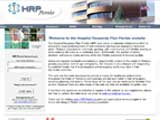
Invest in Children: Juvenile Delinquency Prevention Project
In collaboration with the Panhandle Area Educational Consortium, this project aimed to prevent juvenile delinquency among high-risk youth at Graceville High School in Graceville, Florida. This multi-faceted primary prevention project included implementing the Too Good for Drugs program; creating an after school program for youth with mentoring and life skills development; holding parenting classes using the Active Parenting and Guiding Good Choices curricula; developing a social norming campaign to prevent alcohol, tobacco, and drug use; implementing the Green Dot violence prevention program; and hosting summer enrichment trips.
This project was sponsored by the State of Florida, Department of Juvenile Justice, as part of their Invest in Children contract.
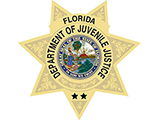
Maternal Wellbeing and Children with Special Healthcare Needs: Healthcare Coordination in Health Provider Shortage Areas
Sponsored by the Health Resources and Services Administration, this project involves Maternal Child Health Secondary Data Analysis Research, focusing on children with special healthcare needs. The purpose of the project is to evaluate the equitable distribution of healthcare coordination on health outcomes for mothers of children with special healthcare needs using a health equity framework. This project involves collaboration with the FSU Department of Human Development & Family Science.
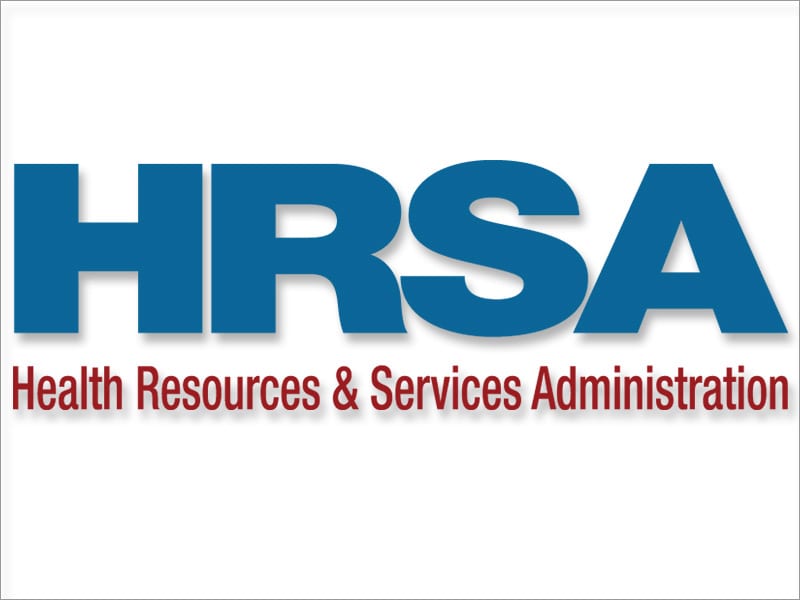
Medicaid Reform Information, Training and Evaluation Program
The Florida Medicaid Reform Choice Counseling website was sponsored by the Florida Agency for Health Care Administration and provides tri-lingual (English, Spanish, and Haitian Creole) information about the Florida Medicaid Reform Program.
The website provided a general information section as well as an FAQ section. Then the website provided a list and contact information for each county's (Broward and Duval) managed care organizations and a comparison chart of the flexible benefits eachorganization provides.
Finally, the website provided a table that shows all the hospitals affiliated with the managed care organizations.

MediRITE
Sponsored by the Florida Agency for Health Care Administration, the Medicaid Reform Information, Training, and Evaluation (MediRITE) Project was a multi-faceted effort to inform Medicaid providers, beneficiaries, and others interested people about Florida's Medicaid Reform pilot program that began in Broward and Duval counties starting on July 1, 2006.
The information was provided in an overview flyer and comparison chart, on a DVD, and in a tri-lingual website. This project also trained and certified the nation's first face-to-face and telephone Choice Counselors who assisted providers with questions and beneficiaries with the opportunity to enroll in a managed care organization that the beneficiary chose.
Finally this project evaluated the Choice Counseling enrollment process and beneficiary satisfaction with the Medicaid Reform Program as well as the training program for the Choice Counselors.
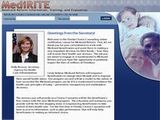
Quit Smoking Program
FCPR helped to develop Quit Smoking NOW (QSN), a 6-session smoking cessation program developed by ex-smokers for those who want to become ex-smokers. Throughout the six sessions, a tobacco treatment specialist (TTS) worked with participants in a supportive group setting to facilitate the cessation process by providing the information and tools needed to become tobacco free. QSN also offered access to nicotine replacement therapies (NRT) such as patches, gum and lozenges, to help manage withdrawal symptoms.
A QSN website also allowed QSN participants to send an E-card to encouragers as well as receive text messages that motivate them to stay tobacco free.
This website was funded by the FSU College of Medicine Area Health Education Center (AHEC).

Recovery Community Organization United Initiative Program Evaluation
FCPR served as an independent program evaluator for the Recovery Community Organization (RCO) United Initiative by the Fellowship Foundation Recovery Community Organization (FFRCO). This project is sponsored by the Substance Abuse and Mental Health Services Administration (SAMHSA), Building Communities of Recovery grant. FCPR was responsible for managing the Government Performance and Results Act (GPRA) data and developing a local performance assessment plan that was tailored to the specific goals, objectives, and context of FFRCO's implementation of their RCO United Initiative program in South Florida. Evaluation findings measured program performance and infrastructure activities, with data being entered into SAMHSA's data entry system in compliance with GPRA.

Red Ribbon Certified Schools
FCPR designed and developed a web-based informational system to support Red Ribbon Certification and administration, and provide support services (hosting, maintenance, technical assistance).
The Red Ribbon Certified Schools Web Site, along with the ideals of the Red Ribbon Certified Schools program, provided an information solution to the need for a comprehensive communications structure for Red Ribbon related facts, activities, and certification.
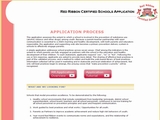
Responsible Retailing Forum
The Responsible Retailing (RR) Forum, jointly conducted by Florida Center for Prevention Research (FCPR), Florida State University and the Heller Graduate School, Brandeis University, was intended to
- Identify and promulgate best practices for responsible retailing, and
- Engage diverse stakeholders, public and private, in examinations of RR policies.
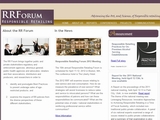
Reduce Underage Alcohol Abuse
Sponsored by the Federal Department of Education and in partnership with the North East Florida Education Consortium, FCPR implemented a three prong initiative to reduce alcohol abuse in middle schools in seven counties.
It introduced the Substance Abuse and Mental Health Services (SAMHSA) approved model programs Too Good for Drugs (TGFD) and the National Registry of Effective Programs (N-REP) Guiding Good Choices (GGC) in the middle school levels, combined with a Social Norms Marketing Campaign (SNMC).
The www.totallyreal.org web site provided information for parents, students and school staff about the effects of alcohol, results of the project and "cool" facts.

Sexual Violence Prevention Program
Sponsored by the Florida Council Against Sexual Violence, under the direction of the Florida Department of Health, this project aims to create a culture of prevention in Calhoun and Liberty Counties where sexual violence is not tolerated. This program is aligned with the CDC's STOP-SV Technical Package to implement a comprehensive sexual violence prevention program that addresses all levels of the Social Ecological Model. This includes implementation of the Green Dot Strategy to prevent personal power-based violence , which incorporates bystander intervention trainings with students, teachers, and staff, to promote safety for everyone and to create a social norm where violence is not tolerated. It also includes a Girls Empowerment Rally and Group and a partnership with Twin Oaks Youth Work Experience Program to empower and support girls. Lastly, it includes creative protective environments through a Social Marketing Campaign, collaboration with community coalitions, and Red Dot Mapping to determine areas of risk.

The Real Project
The Real Project was an initiative sponsored by the National Social Norms Center at Michigan State University and one of FSU's alcohol abuse prevention programs. The University and its campus/community partners developed a model of integrated strategies (individual, campus-based and community based) which were designed to create and support a low-risk environment. Since 2002, the Real Project, a social norms initiative, has proven its ability to promote positive norms, reduce harmful misperceptions, and increase protective behaviors to reduce alcohol related harm. The FSU social norms initiative utilized data collected from undergraduates through its annual U Celebrate survey to reduce alcohol-related harm through campus media (printed and social media) that promotes healthy behaviors and accurately reflects alcohol norms among the student population.
Project Website: https://fsureal.com/
